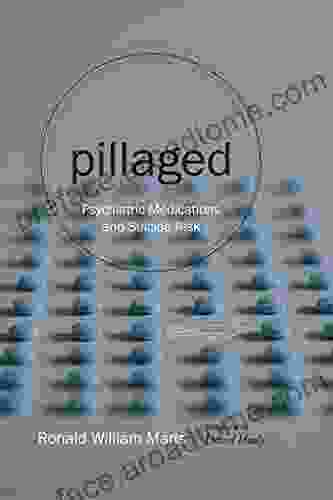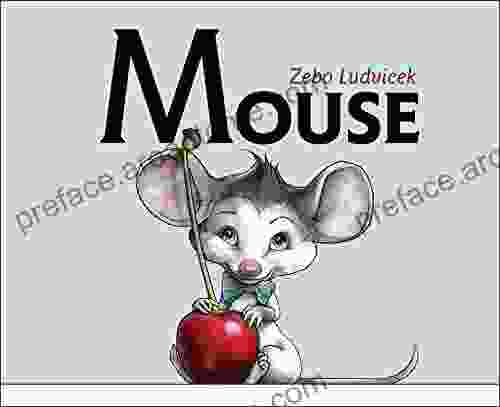Uncover the Secrets of the Amazing Brain: Why Understanding Neurobiology Is Key to Unlocking Your Potential

The human brain is one of the most complex and fascinating organs in the human body. It is responsible for everything from our thoughts and emotions to our movements and memories. In recent years, there has been a growing interest in understanding how the brain works. This field of study, known as neurobiology, has led to a number of important discoveries about how the brain develops, functions, and changes over time.
One of the most important things we have learned from neurobiology is that the brain is not a static organ. It is constantly changing and adapting in response to our experiences. This means that we can actually change our brains for the better by engaging in certain activities and behaviors.
In this article, we will explore some of the latest research on brain function, plasticity, and the impact of lifestyle factors on brain health. We will also provide some tips on how you can improve your brain health and unlock your potential.
5 out of 5
| Language | : | English |
| File size | : | 321 KB |
| Text-to-Speech | : | Enabled |
| Screen Reader | : | Supported |
| Enhanced typesetting | : | Enabled |
| Word Wise | : | Enabled |
| Print length | : | 48 pages |
| Lending | : | Enabled |
The brain is made up of billions of neurons, which are specialized cells that communicate with each other through electrical and chemical signals. These neurons are organized into networks, which are responsible for different functions.
The brain can be divided into two hemispheres, the left hemisphere and the right hemisphere. The left hemisphere is responsible for logical thinking, language, and mathematics. The right hemisphere is responsible for creative thinking, emotions, and spatial reasoning.
The brain is also divided into four lobes: the frontal lobe, the parietal lobe, the temporal lobe, and the occipital lobe. Each lobe has a specific set of functions.
- The frontal lobe is responsible for executive functions, such as planning, decision-making, and problem-solving.
- The parietal lobe is responsible for processing sensory information, such as touch and temperature.
- The temporal lobe is responsible for processing auditory information, such as speech and music.
- The occipital lobe is responsible for processing visual information, such as images and colors.
One of the most important discoveries in neurobiology is that the brain is plastic. This means that it can change and adapt in response to our experiences. This plasticity is what allows us to learn new things, remember information, and recover from brain injuries.
Brain plasticity is greatest in childhood, but it continues throughout adulthood. This means that we can always improve our brain health and function, regardless of our age.
There are a number of things that can promote brain plasticity, including:
- Learning new things
- Challenging yourself mentally
- Exercising regularly
- Eating a healthy diet
- Getting enough sleep
Our lifestyle choices can have a significant impact on our brain health. Some of the most important lifestyle factors for brain health include:
- Exercise: Exercise is one of the best things you can do for your brain. It increases blood flow to the brain, which helps to deliver oxygen and nutrients to brain cells. Exercise also helps to release endorphins, which have mood-boosting effects.
- Diet: Eating a healthy diet is also important for brain health. A diet rich in fruits, vegetables, and whole grains can help to protect the brain from damage and improve cognitive function.
- Sleep: Getting enough sleep is essential for brain health. Sleep allows the brain to rest and repair itself. When we don't get enough sleep, our cognitive function can suffer.
- Stress: Stress can have a negative impact on brain health. Chronic stress can lead to inflammation in the brain, which can damage brain cells and impair cognitive function.
There are a number of things you can do to improve your brain health and unlock your potential. Some of the most important tips include:
- Learn new things: One of the best ways to improve your brain health is to learn new things. This can include learning a new language, playing a musical instrument, or taking a class on a new subject.
- Challenge yourself mentally: Challenging yourself mentally is another great way to improve your brain health. This can include playing brain games, solving puzzles, or reading challenging books.
- Exercise regularly: Exercise is one of the best things you can do for your overall health, including your brain health. Aim for at least 30 minutes of moderate-intensity exercise most days of the week.
- Eat a healthy diet: Eating a healthy diet is also important for brain health. A diet rich in fruits, vegetables, and whole grains can help to protect the brain from damage and improve cognitive function.
- Get enough sleep: Getting enough sleep is essential for brain health. Aim for 7-8 hours of sleep per night.
- Manage stress: Stress can have a negative impact on brain health. Find healthy ways to manage stress, such as exercise, yoga, or meditation.
The human brain is an amazing organ with the potential to learn, grow, and change throughout our lives. By understanding neurobiology and making healthy lifestyle choices, we can improve our brain health and unlock our full potential.
5 out of 5
| Language | : | English |
| File size | : | 321 KB |
| Text-to-Speech | : | Enabled |
| Screen Reader | : | Supported |
| Enhanced typesetting | : | Enabled |
| Word Wise | : | Enabled |
| Print length | : | 48 pages |
| Lending | : | Enabled |
Do you want to contribute by writing guest posts on this blog?
Please contact us and send us a resume of previous articles that you have written.
 Book
Book Novel
Novel Page
Page Chapter
Chapter Text
Text Story
Story Genre
Genre Reader
Reader Library
Library Paperback
Paperback E-book
E-book Magazine
Magazine Newspaper
Newspaper Paragraph
Paragraph Sentence
Sentence Bookmark
Bookmark Shelf
Shelf Glossary
Glossary Bibliography
Bibliography Foreword
Foreword Preface
Preface Synopsis
Synopsis Annotation
Annotation Footnote
Footnote Manuscript
Manuscript Scroll
Scroll Codex
Codex Tome
Tome Bestseller
Bestseller Classics
Classics Library card
Library card Narrative
Narrative Biography
Biography Autobiography
Autobiography Memoir
Memoir Reference
Reference Encyclopedia
Encyclopedia Kathryn Miles
Kathryn Miles Kai Eide
Kai Eide Margie Porter
Margie Porter Diana Palm
Diana Palm Laura Pulido
Laura Pulido Douglas Spotted Eagle
Douglas Spotted Eagle Robert Pagliarini
Robert Pagliarini Don Zolidis
Don Zolidis Donna Tedesco
Donna Tedesco Dion Fortune
Dion Fortune Karl Paulsen
Karl Paulsen Geoff Cumming
Geoff Cumming Leonard M Adkins
Leonard M Adkins Robert Magnan
Robert Magnan Jim Denison
Jim Denison Speedy Publishing Llc
Speedy Publishing Llc Doug Gold
Doug Gold Dorothy C Diggs
Dorothy C Diggs Kan Kimura
Kan Kimura Philip P Muisener
Philip P Muisener
Light bulbAdvertise smarter! Our strategic ad space ensures maximum exposure. Reserve your spot today!

 Hector BlairPillaged Psychiatric Medications And Suicide Risk: A Comprehensive Guide to...
Hector BlairPillaged Psychiatric Medications And Suicide Risk: A Comprehensive Guide to...
 Douglas AdamsBig Letter Little Letter: Donnie Cox's Inspiring Tale of Overcoming Dyslexia
Douglas AdamsBig Letter Little Letter: Donnie Cox's Inspiring Tale of Overcoming Dyslexia Ralph Waldo EmersonFollow ·7.2k
Ralph Waldo EmersonFollow ·7.2k Frank MitchellFollow ·4.4k
Frank MitchellFollow ·4.4k Ken FollettFollow ·4k
Ken FollettFollow ·4k Ralph TurnerFollow ·7.7k
Ralph TurnerFollow ·7.7k Ronald SimmonsFollow ·13k
Ronald SimmonsFollow ·13k Dan BrownFollow ·8.2k
Dan BrownFollow ·8.2k Chinua AchebeFollow ·16.7k
Chinua AchebeFollow ·16.7k Kendall WardFollow ·15.7k
Kendall WardFollow ·15.7k

 Brandon Cox
Brandon CoxUnveiling the Secrets of Core Concepts: The Ultimate...
Are you ready to unlock the doors...

 Colt Simmons
Colt SimmonsUnlock Your True Potential: Uncover the Real Reasons For...
Embark on a...

 Ivan Turner
Ivan TurnerLove You Mom But You And Dad Are Getting a Divorce
A Heartfelt and...

 Ervin Bell
Ervin BellIntroducing Mouse Paul Moorcraft: A Captivating Tale of...
Embark on an Unforgettable Journey...

 Mike Hayes
Mike HayesBattling Obesity In Teens And Shaping The Future
The Growing...

 Yasushi Inoue
Yasushi InoueEmbark on a Culinary and Cultural Voyage: Delve into the...
A Tapestry of...
5 out of 5
| Language | : | English |
| File size | : | 321 KB |
| Text-to-Speech | : | Enabled |
| Screen Reader | : | Supported |
| Enhanced typesetting | : | Enabled |
| Word Wise | : | Enabled |
| Print length | : | 48 pages |
| Lending | : | Enabled |








